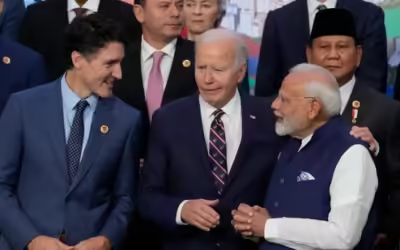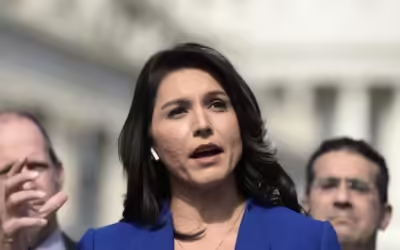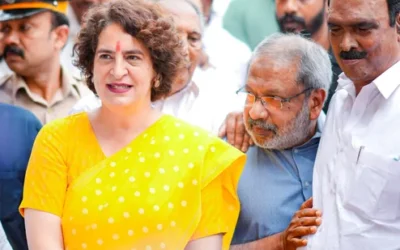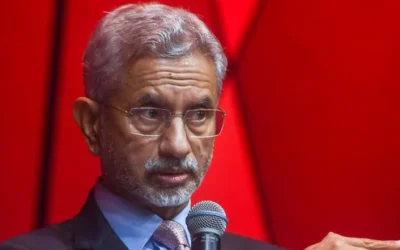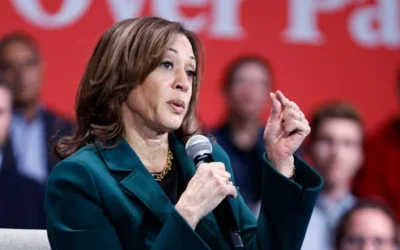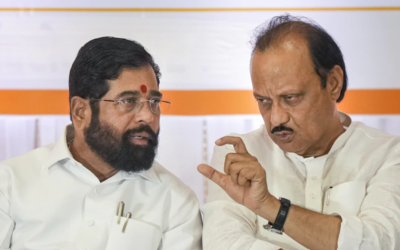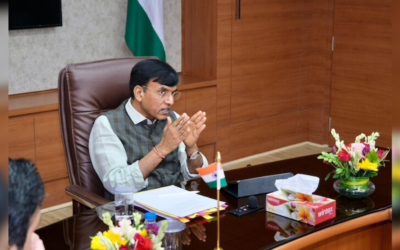When contemplating between Harris or Trump, abortion bans weigh heavily on the minds of young women in North Carolina.
Christy Kishbaugh, a 26-year-old woman from Winston-Salem, North Carolina, is tormented by the TikTok videos.
Embedded in her mind is a vivid memory of a young mother recounting her traumatic experience of being turned away by multiple Idaho emergency rooms due to the state’s abortion restrictions. This led to her enduring weeks of bleeding following a miscarriage.
Videos like that are sent by Kishbaugh to friends with a message that reads, “Can you believe this?
Denial of her ability is prevailing.
Near a bustling park, a married suburban woman whispered anxiously about her own prospects amidst the intricate web of state legislations that have restricted numerous women nationwide from accessing abortion services.
Almost in a hushed tone, Kishbaugh clutched an iced coffee as he contemplated the future, his mind consumed by the unsettling notion of loved ones facing mortality, infertility, or the tragedy of losing a child due to inadequate healthcare access.
The presidential election is shaping up to be a crucial moment for the rights of millions of women, with tensions over abortion escalating two years post the U.S. Supreme Court’s decision to reverse Roe v. Wade.
In states like Georgia, Florida, and Texas, Republicans have traditionally enjoyed strong backing from white women, who tend to support them more than white women across the country, as indicated by data from VoteCast, a comprehensive electoral survey. However, in North Carolina, a key battleground state where Donald Trump secured 60% of the white women’s vote in 2020, their loyalty may face challenges due to the state’s recent implementation of a 12-week abortion ban.
Should Trump’s backing from white females in North Carolina decrease towards the demographic’s nationwide mean of 52% next year, securing the state’s 16 electoral votes may prove to be challenging for him once more. Vice President Kamala Harris might emerge victorious by a slim margin if a small portion of white women opt to endorse her over Trump. In the 2020 election, Trump clinched North Carolina by a mere 1.3 percentage points, marking his narrowest margin of triumph.
In the 2020 North Carolina elections, only 3% of voters considered abortion a significant concern. Among this small fraction, the vast majority supported Trump, drawn to his commitment to selecting Supreme Court judges likely to reverse Roe v. Wade. This landmark decision had safeguarded a woman’s abortion rights for almost fifty years.
The recent ruling has decentralized the decision on abortion rights to individual states, creating ongoing debates as various legislatures introduce a variety of restrictions. Harris has emphasized the implications of these laws in her campaign. Surprisingly, a significant 10% of voters in North Carolina in 2022 have identified abortion as their top concern, as revealed by data from VoteCast. Furthermore, an overwhelming majority of 2022 North Carolina voters who placed high importance on abortion issues showed their support for Democratic candidates across the state.
Is the upcoming presidential election going to highlight the true significance of abortion rights for the voters and determine if their concerns about Harris’s stance on the economy, immigration, and other issues can be outweighed by this crucial topic? Has the Republican party ignited a debate bomb with their recent actions regarding abortion?
Morgan Jackson, a campaign consultant for Democratic candidate Josh Stein in the gubernatorial race, has highlighted the message that North Carolina Democrats are conveying to voters: Republicans are deemed excessively rigid on abortion issues and are seeking to exert authority over women, particularly those under the age of 35.
Jackson remarked that Republicans had detonated the hand grenade in their own possession. He pointed out that the Republicans believed there was unwavering support, but the situation was far more intricate than they had anticipated.
As per a recent survey conducted by KFF, a prominent health policy research organization, it was found that 40% of women under the age of 30 consider abortion as their primary concern on a national level.
Republican State Senator Vickie Sawyer noted that North Carolina stands out among southern states for not implementing stringent abortion bans, unlike others that have virtually made access to abortions unattainable. This more moderate stance is expected to reduce the urgency of the issue for voters in the state.
Sawyer reflects on the discussions she has with her young adult daughters. While the topic of abortion arises occasionally, it is overshadowed by their concerns about the increasing costs of housing and daily necessities.
Sawyer mentioned that the issue falls within the range of matters that could impact them. However, he highlighted that they are aware that their rights are safeguarded, as the state’s 12-week abortion prohibition includes provisions for certain exceptions during the second trimester.
Democrats warn voters about the ongoing danger to abortion rights posed by the Republican gubernatorial candidate, Mark Robinson, who previously vowed to ban abortion in North Carolina without exceptions. A compelling ad aired during NFL games on Sunday portrays a woman recounting a harrowing experience in a Texas emergency room where medical professionals hesitated to perform a dilation and curettage surgery, commonly associated with abortions, leading to severe complications post-childbirth.
Jackson stated that the Harris campaign, leveraging the existing enthusiasm among Black women, aims to capture the support of suburban white and Latino women by highlighting the abortion issue. It’s worth noting that no Democratic presidential contender has clinched victory in North Carolina since 2008 when Barack Obama emerged victorious.
Amidst the final stretch of the election race, North Carolina witnessed a flurry of back-to-back appearances by both presidential candidates and their representatives. Trump assessed the aftermath of the storm in the western part of the state, while Harris engaged with the community at a predominantly Black church and energized a gathering of 7,000 at Eastern Carolina University in recent weeks.
Tim Walz, Harris’ running mate, urged the audience at a gymnasium in Winston-Salem to ponder the possibility of increased restrictions on abortion access in the event of a second Trump presidency, on a day when a historic 353,166 votes were tallied at various polling stations around the state. Walz emphasized that voters should not trust the ex-president’s assurance of vetoing a nationwide abortion prohibition.
Walz emphasized the critical impact of our voting choices on the lives of those dear to us – our spouses, our daughters, our mothers, our friends, even our neighbors.
The Harris campaign boasts 29 field offices and a team of more than 340 staff members in the state. According to the campaign, a key focus has been reaching out to Black and younger voters. In response to an inquiry about Trump’s campaign presence, Sawyer, who represents a conservative area in the suburbs of Charlotte, was the contact provided by Trump’s team.
In the pursuit of the necessary votes, Harris’ campaign could discover a promising reservoir in the flourishing lands of Forsyth County. This region thrives with a demographic rich in women, college attendees, and young professionals. Winston-Salem, the county’s central hub, boasts a transformation characterized by chic loft residences, repurposed from former tobacco factories, and eclectic coffee houses. This surge in population has played a pivotal role in transitioning the town’s political landscape from a longstanding Republican stronghold to Democratic governance. The city’s economic engine is fueled significantly by a cluster of prestigious academic institutions, with Wake Forest University leading the pack.
Jenny Gonzalez, a 21-year-old student, found inspiration to participate in her inaugural election after being stirred by the abortion debate on a university campus. Her vote will go to Harris.
Gonzalez, a pharmacy technology student at Forsyth Technical Community College, emphasized the importance of providing access to abortion for all women, regardless of their circumstances. She highlighted the fact that everyone faces unique challenges, and it’s crucial to support their decision without judgment.
In downtown Fayetteville, approximately 120 miles southeast of Winston-Salem, Christine Ducheneaux, a 48-year-old woman, shared on a bench why abortion is also her primary concern.
Ducheneaux, a mother of three, emphasized the importance of body autonomy, expressing frustration with older white men who make decisions on her behalf without understanding her needs or situation. She highlighted the absurdity of individuals who are not her doctor dictating what is best for her and her family.
Ducheneaux initially expressed lack of enthusiasm towards voting for President Joe Biden; however, her excitement surged significantly upon his withdrawal, leading her to eagerly support Harris.
Feeling unsettled by abortion regulations, Liz Haycraft, a 44-year-old tattoo artist known as “Gruesome” and a former Republican with previous anti-abortion views, now finds herself concerned. Although she personally has no intentions of having children, she fears for other women who may encounter obstacles in accessing necessary healthcare services.
Haycraft, who intends to cast her vote for Harris, firmly believes that women should not be required to sacrifice their lives or bodies.
Laura Browne, a 45-year-old retired Air Force staff sergeant and mother of two daughters, stationed herself outside a Planned Parenthood clinic with bags of snacks and anti-abortion pamphlets. Her aim was to engage with women entering the facility and steer them towards conversation. Browne is convinced that Democrats are resorting to frightening narratives about abortion to manipulate and intimidate young women.
Browne, an employee at a nearby anti-abortion facility that provides guidance to expectant mothers, expressed concern that individuals might be incorrectly informed that they have no alternative and are too young to start a family. She firmly stated that such a notion is inaccurate.
Republicans insist that the focus remains on the economy, while Browne refrained from disclosing her voting preference for the election.
The subject is largely being understated by Republicans. Trump’s campaign has chosen to air advertisements in the area, criticizing Harris for backing taxpayer-funded transgender surgery. Additionally, supporters of the GOP in the region are expressing doubts about the effectiveness of the Biden administration’s response to the aftermath of Hurricane Helene.
Linda L. Petrou, a seasoned Republican and district chair in Forsyth County, pointed out that although abortion might strongly appeal to younger women, they have been traditionally considered an unpredictable voting demographic.
Petrou acknowledged the possibility of an increase in the number of young women voting for Harris, but she also noted that the voting turnout among young people remains relatively low.
Elderly females, including those who identify as Democrats, tend to view abortion as a less central topic in comparison to younger women.
For Donna Klein, an 80-year-old retired individual, while women’s rights hold significance, her primary focus lies on environmental issues, with occasional distress caused by the hurricane devastation, given her long-standing affiliation with the Democratic party.
Klein emphasized the crucial need to understand the situation and consider possible actions. Reflecting on his role as an elder, he pondered the environmental legacy left for future generations, particularly his grandchildren.
Petrou mentioned that the Republicans are relying on a general discontent with the economy to ensure that their supporters remain firmly aligned with Trump.
Leyla Herrera, a 20-year-old student at Wake Forest University, is contemplating casting her vote for Trump in her inaugural presidential election due to the impact of inflation. Despite not being affiliated with any political party, the biology major expresses that the surge in prices has posed challenges for her middle-class family residing in a suburb of Charlotte.
According to her, during Donald Trump’s presidency, there were more affordable prices, particularly for gasoline. Food costs have significantly increased since then.
Herrera finds herself torn on the topic of abortion. While she opposes recent legislation restricting rape survivors from terminating pregnancies, she also contemplates her mother’s circumstances. Her mother was born and adopted just the year before the U.S. Supreme Court’s landmark decision on national abortion rights in 1973.
Herrera expressed gratitude for the timing of her birth, acknowledging that had she been born just a year later, her existence would have been altered significantly, a thought that deeply resonates with her.
There are Republican women who also face challenges in defining their positions.
In the run-up to the election, Robin Spadt, a Canadian immigrant who is apprehensive about the rising number of individuals entering the U.S. through illegal means, remains undecided on her voting choice. She affirms that Harris won’t be receiving her vote and expresses her uncertainty about the recent statements made by Trump, whom she supported in both the 2016 and 2020 elections, labeling them as “highly erratic.
Attempting to address another dilemma before she makes her way to the voting precinct, the 68-year-old grandmother from the suburbs is faced with yet another challenge.
Spadt expressed his disapproval of governmental interference in his five granddaughters’ autonomy over their bodies.
From Fayetteville, North Carolina, Superville provided the report, with contributions from National Writer Allen G. Breed in Fayetteville, and Associated Press writers Bill Barrow in Winston-Salem and Josh Boak in Washington.







